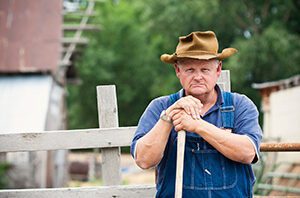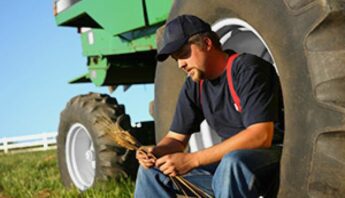Here we go again. After the 2012 fiasco in which Congress failed to pass a Farm Bill at the 11th hour, the Senate rallied early this month to pass its version of the national food and farming legislation — which is up for debate and renewal every five years.
Ten days later, the Farm Bill died again when the House failed to pass its own version of the 2013 bill. It’s not clear exactly what’s up next. But we're rolling up our sleeves — again — to press for the best legislation possible, and we fully hope and expect that Congress will pass a Farm Bill this year.
So what happened last week?
Here's the scoop. House Democrats resoundingly opposed dramatic cuts to the Supplemental Nutrition Assistance Program (SNAP, also known as food stamps) included in the proposed bill. The proposed bill would have severely narrowed this aspect of our nation's social safety net, knocking two million current recipients out of the SNAP program.
What will it take?
Since we can expect Tea Party Republicans to oppose any bill without even greater SNAP cuts, the other Republicans and Democrats will need to work together.
And there are clear signs this is possible. Before the bill failed, the House passed a historic amendment limiting commodity payments. As policy analysts for the National Sustainable Agriculture Coalition (NSAC) explain, this may be the key — along with agreement on SNAP — to revival of the Farm Bill.
And several amendments with bipartisan co-sponsorship included important limits on government payments for insurance premiums. Unfortunately many of those amendments were among the 100+ that never made it to the floor for debate and vote.
So, creating a Farm Bill that could pass in the House means making less draconian cuts to the SNAP program, keeping reforms to commodity payment programs that were agreed to in the floor debate, and making substantive reforms to crop insurance programs — which have surpassed the commodity programs in terms government expenditure.
It will also mean including bipartisan amendments for rural economic development, local and regional food systems, organic agriculture and fair competition.
Meanwhile, on the budget side…
In a separate process, both the House and Senate have to pass agriculture budgets every year to fund agriculture, rural development, nutrition and food safety programs. The huge gap in priorities between the House and Senate on the Farm Bill is also reflected in their budget proposals. They differ from one another by about $1.43 billion.
This week and last, the relevant Senate and House committees wrote up their proposal for agriculture spending for the 2014 fiscal year that begins October 1. The full House is expected to take up the proposal next week. The full Senate will then follow.
While both House and Senate budgets allow for continued support of the important Conservation Stewardship Program, many conservation programs face cuts — including the Environmental Quality Incentives Program, the Wildlife Habitat Incentives Program and the Agricultural Management Assistance Program. Funding levels remain inadequate, even in the Senate bill, for the USDA to fully deliver the conservation programs.
We’re happy to report that both budgets continue support for some key rural development programs including the Value-Added Producer Grants. The Senate budget also continues to fund important sustainable agriculture research, education and extension including the Sustainable Agriculture Research and Education program — the cornerstone program that has funded research on sustainable agriculture systems over the past 25 years.
A long haul that isn't over
Following the 4th of July holiday, Congress will pick up where they left off and will — for better or for worse — decide the fate of U.S. agriculture for the next five years.
We won't let our guard down, and will continue to let our readers know when opportunities arise to put the pressure on policymakers in Congress to pass smart legislation that is responsible to taxpayers, farmers and consumers — now and for future generations.








